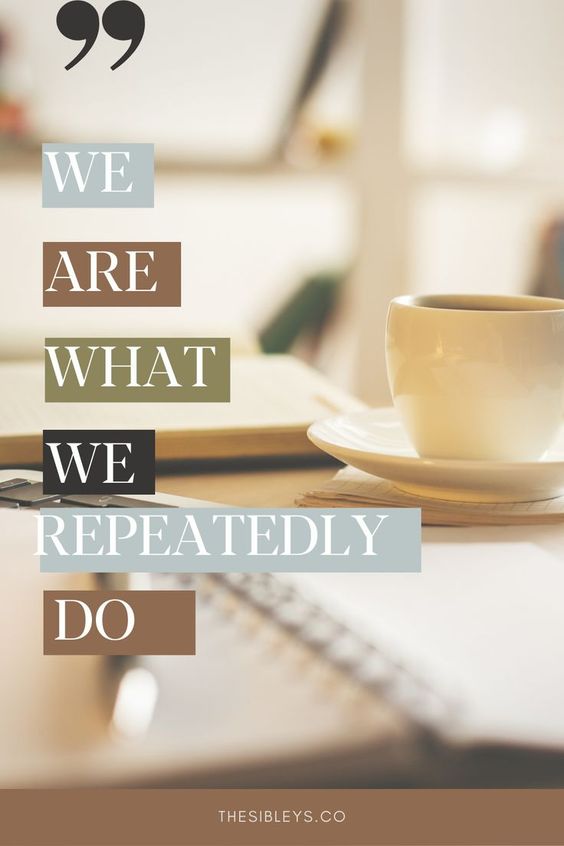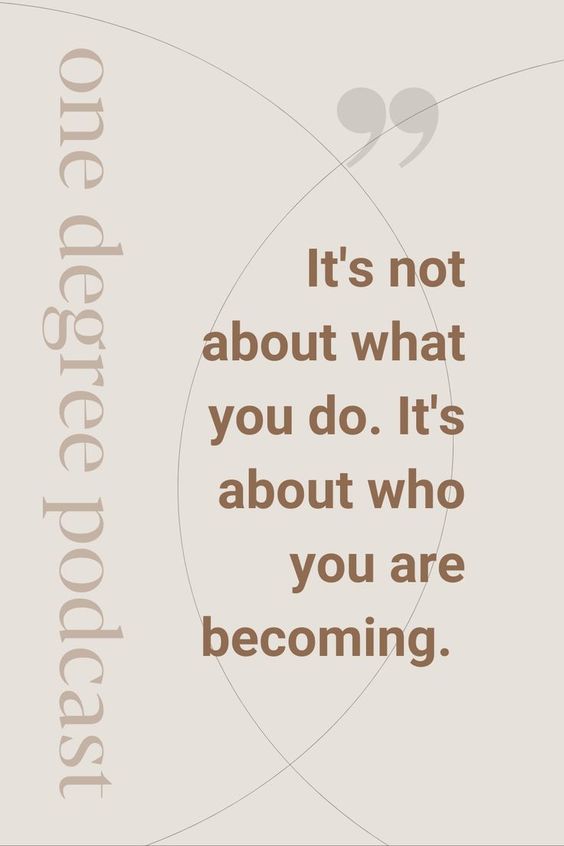APPLE PODCASTS | SPOTIFY | STITCHER
What is the long game and how do you play it? How do you stay disciplined when you don’t feel motivated?
In this first official episode of The One Degree Podcast, we start by giving you a little more background on who we, Nathaniel and Xan, are. We then dive into a fundamental concept that will be threaded into many episodes of this podcast –– playing the long game.
Why are our 20s and 30s important?
The habits we develop, whether intentionally or unintentionally, in our 20s and 30s are crucial. These are the habits that will likely be with us for the rest of our life.

We are what we repeatedly do
“We are what we repeatedly do. Excellence, then, is not an act, but a habit.” –Will Durant summarizing Aristotle.
A concept that’s addressed in the book Atomic Habits by James Clear, is to not start with our goals, but with who we want to be. For instance, the goal of running a marathon may not lead to as much life transformation as the goal of becoming a runner. One can train for a marathon, run it well, and never run again. But to become a runner is to embrace an identity that is long-lasting.
So practically, ask yourself: “What would a person who ________ do?” What would a person who is organized do? A person who is healthy do? A person who prioritizes their family do?

If you’re a college student, don’t just focus on finishing the semester with good grades. Focus on becoming a lifelong learner with strong rhythms and disciplines. It’s not about what you do, it’s about who you’re becoming.
As you’re in your 20s and 30s, be intentional about the habits you’re building: around sleep, serving the local church, how much you’re producing vs. consuming, etc. Would the type of person you want to be have these habits?
If you’re a parent, don’t focus on the easiest route. While the stress of a newborn crying or of a young child throwing a temper tantrum makes it appear appealing to give in, we know that it’s always best to focus on the long run and the idea of what we want our family to become.
The key to all of this? Don’t try to go all or nothing. Start with one baby step forward. Wake up 5 minutes earlier, watch just one Netflix episode at a time instead of binging, move your body for an extra 10 minutes a day. It’s not about overhauling–– it’s about progress. It’s about playing the long game.
Lead with discipline. Let desire follow.
So often we ask the question “How do I get motivated or stay motivated?” but motivation is really never our goal. If we rely on being motivated to fulfill our goals or perform our habits, then our goals and habits will most likely remain unfulfilled.
Rather, choosing discipline keeps you following through on something even when you don’t feel like it. Make the first move from a place of discipline, and let the desires and motivations follow.
One degree shift towards the long game
Start with thinking about who you want to become, not just something you want to do or accomplish. Then, replace one simple task that doesn’t serve the person you want to become, and replace it with a beneficial baby step towards that person.
For instance, if you want to be someone more devoted to prayer: stop grabbing your phone first thing in the morning, and replace that time with two minutes of prayer. If you want to be someone who reads: read for even just 10 minutes a day before you watch TV or do your homework.
This episode was brought to you by Thrive Market!



+ show Comments
- Hide Comments
add a comment